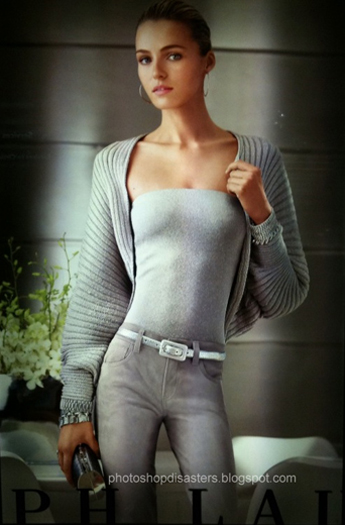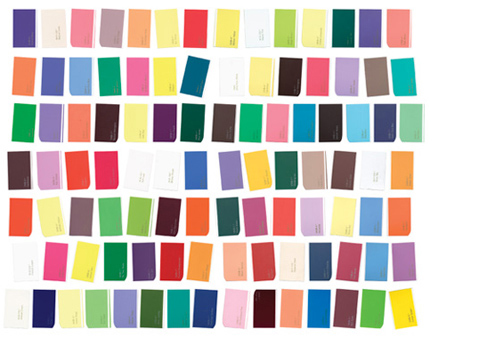Endless Letterpress
There is no escape from form
—Salman Rushdie, Midnight’s Children, 1981. (p. 221)
Ralph Lauren’s photoshop disasters
100 Colors
Nothing is without meaning
—Salman Rushdie, Midnight’s Children, 1981. (p. 212)
a dark rug
—Salman Rushdie, Midnight’s Children, 1981. (p. 437)
No colours except green and black
—Salman Rushdie, Midnight’s Children, 1981. (p. 204)
squiggly gold
—Salman Rushdie, Midnight’s Children, 1981. (p. 19)
Green chutney
—Salman Rushdie, Midnight’s Children, 1981. (p. 205)
The Divine Radiance Of Our Lord
“ ‘Blue,’ the young priest said earnestly. ‘All available evidence, my daughter, suggests that Our Lord Jesus was the most beauteous, crystal shade of pale sky blue.’
The little woman behind the wooden latticed window of the confessional fell silent for a moment. An anxious, cogitating silence. Then: ‘But how, Father? People are not blue. No people are blue in the whole big world!’
Bewilderment of little woman, matched by perplexity of the priest . . . because this is not how she’s supposed to react. The Bishop had said, ‘Problems with recent converts . . . when they ask about colour they’re almost always that . . . important to build bridges, my son. Remember,’ thus spake the Bishop, ‘God is love; and the Hindu love-god, Krishna, is always depicted with blue skin. Tell them blue; it will be a sort of bridge between the faiths; gently does it, you follow; and besides blue is a neutral sort of colour, avoids the usual colour problems, gets you away from black and white: yes, on the whole I’m sure it’s the one to choose.’ Even bishops can be wrong, the young father is thinking, but meanwhile he’s in quite a spot, because the little woman is clearly getting into a state, has begun issuing a severe reprimand through the wooden grill: ‘What type of answer is blue, Father, how to believe such a thing? You should write to Holy Father Pope in Rome, he will surely put you straight; but one does not have to be Pope to know that the mens are not ever blue!’ The young father closes his eyes; breaths deeply; counter-attacks. ‘Skins have been dyed blue,’ he stumbles. ‘The Picts; the blue Arab nomads; with the benefits of education, my daughter, you would see . . .’ But now a violent snort echoes in the confessional. ‘What, Father? You are comparing Our Lord to junglee wild men? O Lord, I must catch my ears for shame!’ . . . And there is more, much more, while the young father whose stomach is giving him hell suddenly has the inspiration that there is something more important lurking behind this blue business, and asks the question; whereupon tirade gives way to tears, and the young father says panickily, ‘Come, come, surely the Divine Radiance of Our Lord is not a matter of mere pigment?’ ”
—Salman Rushdie, Midnight’s Children, 1981. (p. 103)


